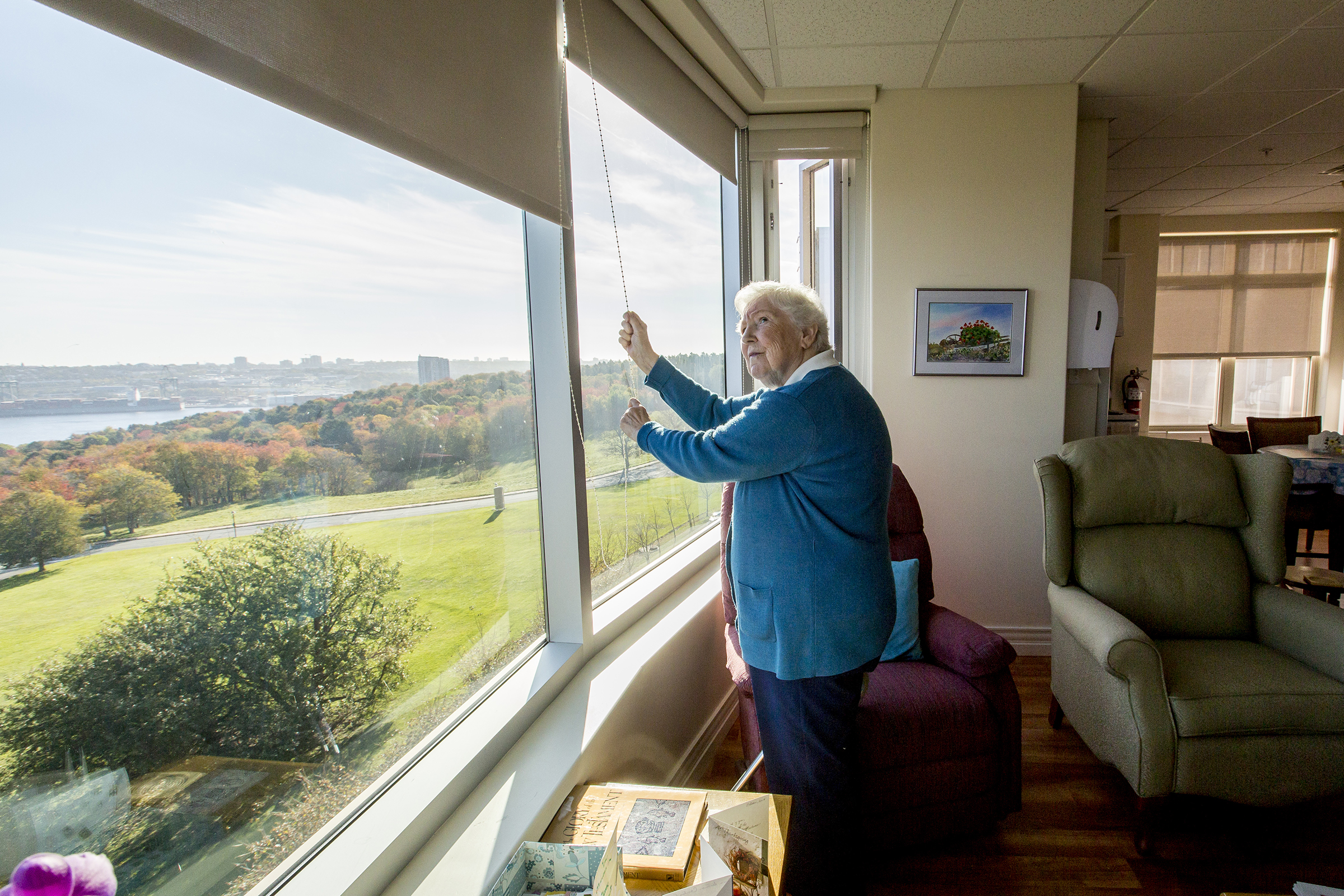Wednesday Reflection: Lockdown at Caritas
By Theresa Chu, RSCJ
The lockdown due to COVID-19 will be a time to remember because experiences these days seem to call for new understandings, which, one day, might lead to new definitions.
At Caritas, in Halifax, Nova Scotia, most of us are quite elderly, and we stay where we are as a rule, “locked down” or not. Yet a difference has been felt as days and weeks go by. The other day, I saw two staff members picking cigarette buds from the lawn, each filling a garbage bag; this would not be within their job descriptions, I thought, one of them being a nurse. As our hair salon is closed, I have seen one resident washing the hair of another.
Along the same line, I saw the general manager, fully equipped with PPE, wipe all the hand bars in the building. Having meals in our individual rooms provided opportunities to exchange a few friendly words, a smile or two with those who bring us food three times a day… the list can go on. “We are all in it together,” as government and civil leadership like to say these days.
Hearing Mass on TV has become routine. I find the homilies given by different priests inspiring; I listen to each and all like a starving person longing for food. The homily might be given by a priest, a bishop or by Pope Francis; I find them all quite inspiring. Perhaps being locked down has the affect of heightening our sensitivity to truth and to the importance of relationships. To see the Mass celebrant face an almost empty church has now become normal, though still quite strange.
At the same time, a wish of Teilhard de Chardin expressed in one of his books comes to mind. He wished he could say Mass on top of the highest mountain in the world, because then, the sacrifice of Christ to His Father on behalf of humanity could be better symbolized, visible audience or no visible audience.
To see the close-up of the various celebrants is another story: faced with an empty church, their fervour seems to be all the greater. For me, to see the Pope’s facial expressions so clearly made me feel as if a radical change has taken place. I am used to thinking of the successor of St. Peter entering the Basilica of St. Peter’s in Rome sitting on a chair raised high and carried by four people. The realization that things have changed made me feel my age, for I have crossed the mid-nineties. Pope Francis has wanted to be a man among men, a fact, which in my view, only strengthens his position as successor of St. Peter. Did Jesus and his apostles not walk among crowds of ordinary people: fishermen, publicans, women and the sick, knowing each and tending to each?
Being locked down seems to provide the conditions for us to see the person beneath his or her personality traits, a condition toward the ideal of a human family, while expanding the notion of family outward toward ever larger units – the local parish, the immediate neighborhood, society and the world. After all, as government leaders want to say these days: “We are all in it together.”
